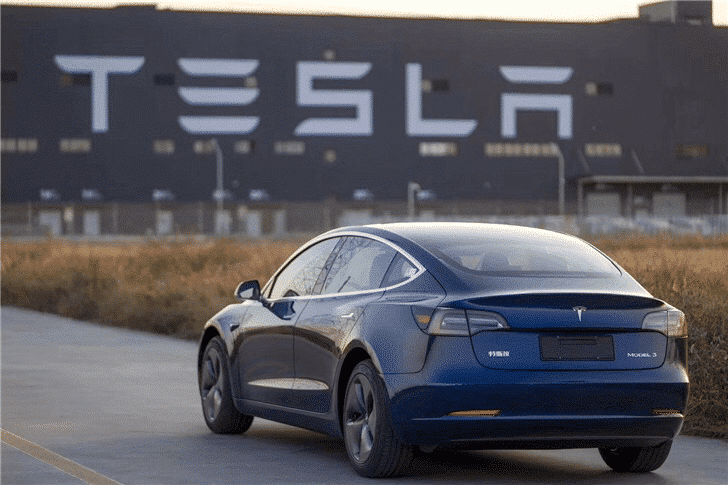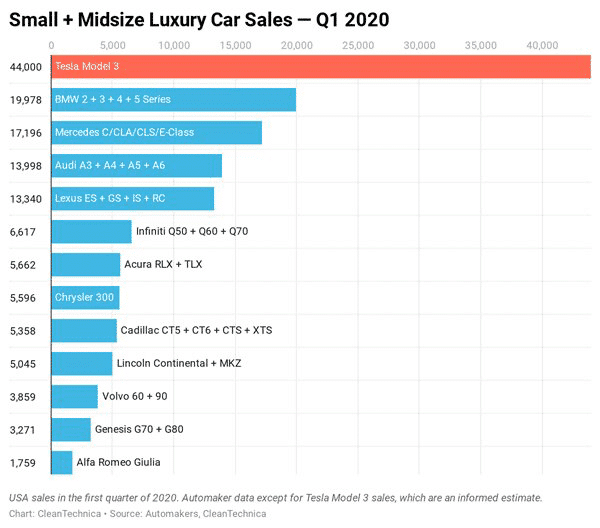
On April 10, the Tesla Model 3 made in China added two popular versions.
The Made-in-China Model 3 long-endurance rear-wheel-drive version is officially open for pre-order, with an endurance of 668 kilometers and a subsidy starting at 339,050 yuan. At the same time, Model 3 high-performance all-wheel-drive version will also be made in China, priced from 419800 yuan.
Compared with the previous upgraded version of the Model 3 standard battery life in China, this new long-range rear-drive version is only about 40,000 yuan more expensive, but it has more than 200 kilometers of battery life.
The users who bought the imported Performance high-performance all-wheel drive version before did not expect it to be made in China, and the price was greatly reduced.
The Chinese manufacturing of these two models is actually behind the big adjustment of Tesla's original strategy for China's super factory.
In January 2019, when the Tesla Shanghai plant had just announced the start of construction, Musk was still calling for "Model 3's high allocation price will be the same as this year next year. I hope people will not wait and see, or wait for price cuts." He even It is clear that the Shanghai Super Factory in China will only produce the low-profile Model 3 for the Chinese and other Asian markets.
But the arrival of the new coronavirus epidemic has had a great impact on the supply chain and Tesla's global strategy.
Just less than a year after its completion, Tesla quickly increased the role of the Chinese factory. Made in China with the full range of Model 3 models, and further expanded domestic demand. In the face of the epidemic, a long battle period, the production capacity of the Chinese factory was increased. To full load, to reduce costs and bring more product power.
However, with the improvement of Tesla's manufacturing in China and the continuous dip in prices, many people can't help but worry about the newly-built cars that have just grown up in China.
Stirring the Chinese market
Tesla has always been an ally of Chinese electric vehicle startups.
Tesla relies on wider visibility and new cars to promote consumers' understanding of electric vehicles and "smart" electric vehicles. "Tesla is more like a catfish. It forces Chinese companies to make products seriously." Li Xiang said two days ago in a conversation with Snowball Fang Sanwen. "For serious practitioners, there is pressure in the short term. But it is definitely a good thing in the long run. "
For Weilai product ES6, many people think it will be affected by Model 3's Chinese manufacturing.
But it and Model 3 are actually two completely different products. At the product level, one is a compact car and the other is a medium-sized SUV. It is easy to distinguish the two cars from the space and luxury.
From the perspective of product competitiveness, the 100-kilowatt-hour battery pack that Weilai is about to launch also helps the ES6 model NEDC last more than 600 kilometers. This also continues to narrow the gap with Tesla in terms of data.
At the same time, Weilai relied on the positioning of "user enterprise" and the flexible policy of power replacement and battery rental, including a new and unique battery upgrade strategy of "rechargeable, replaceable and upgradeable", which also maintained a differentiated experience with Tesla. .
It can be said that there are two products with significant differences, but what does not hinder is that they work together to strengthen the category advantages of the acceleration performance, NVH and vehicle cost of electric vehicles.
Tesla's announcement of "post-subsidy" prices this time is also a small way to crack down on opponents. And Weilai's "battery service" and "on-demand upgrade" strategies can also be seen as a magic weapon to hit opponents in the "price system".
It's just that this "opponent" is not Tesla and Weilai, but a traditional fuel car.
"We will soon see a boundary brought by the reduction in battery costs, that is, fuel cars can save one or two years of fuel costs to fully cover the cost of the entire battery of pure electric vehicles." Li Bin interviewed by Geek Park last year The time said, "By next year, without subsidies, I believe that electric vehicles can already form a strong driving force in terms of price advantage compared to traditional gasoline vehicles."
Traditional luxury car manufacturers need to worry
This time the car companies that are really scared are actually BMW, Mercedes-Benz and Audi.
Tesla sold 10,160 vehicles in China in March. Compared with the data in 2019, in March 2019, there were 14015 Mercedes-Benz C-Class, 15820 BMW 3 Series, and 14351 Audi A4L.
As the head force in the field of electric vehicles, Tesla has begun to shake the market share of fuel vehicles of the same level, and this time it happened in the world's largest "Chinese market." The realization of Model 3's full range of Chinese-made models will definitely accelerate the electric vehicle market and bring different patterns to the Chinese market in 2020.
For traditional luxury cars, their electric products have just appeared, which is a kind of promotion for the electric car market. For this century-old automobile industry, its "foundation" began to shake for the first time in 2019, and electrified products landed one by one. For this unusual 2020, it may be time to use "sales" to make an endorsement of electric and intelligent.
